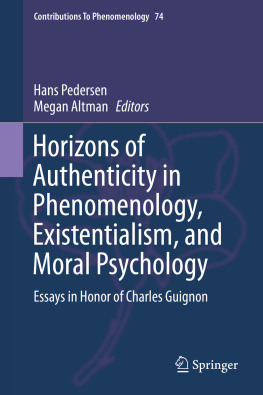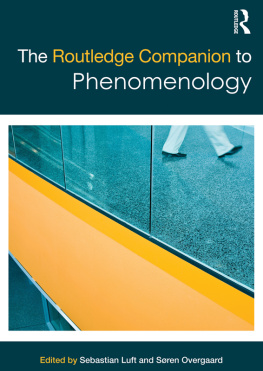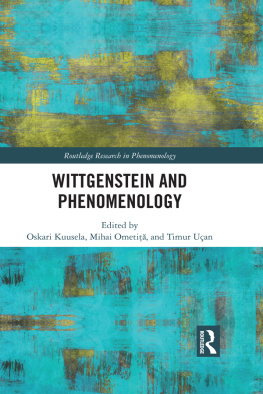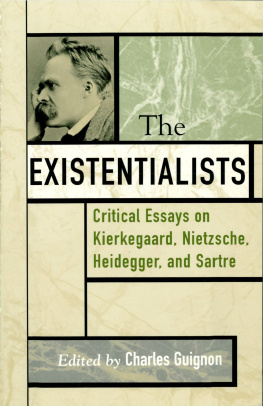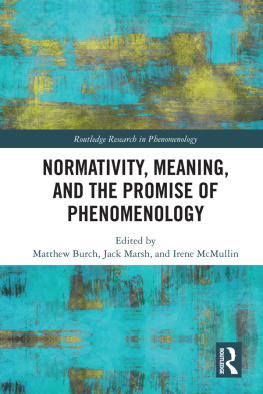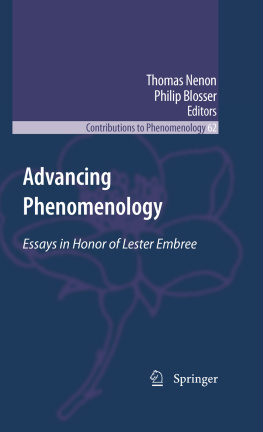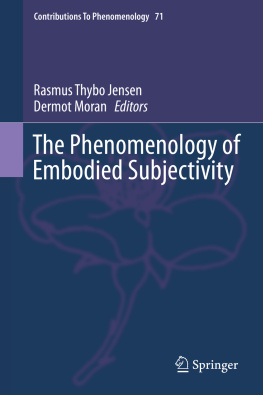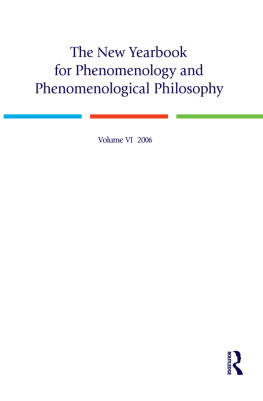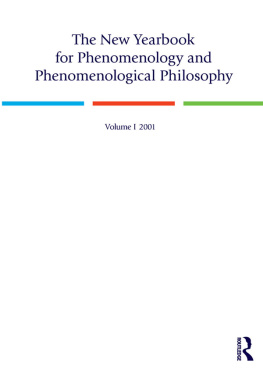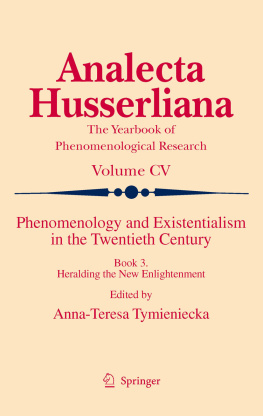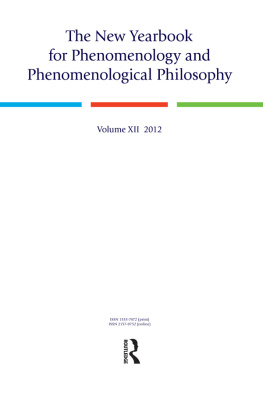1. Introduction
This volume centers on the exploration of the ways in which the canonical texts and thinkers of the phenomenological and existential tradition can be utilized to address contemporary, concrete philosophical issues. Within the discipline of philosophy, there are, on the one hand, many thinkers who see philosophy as a process of abstraction in the pure search for theoretical knowledge, without thinking it necessary to explain how philosophy is practically situated. On the other hand, there are a growing number of philosophers who feel that philosophy can and should strive to illuminate and engage with pressing social, moral, and political issues. In the more general sphere of public debate, there are many who question the value of the continued existence of the discipline of philosophy. Especially in the light of serious financial difficulties faced by many colleges and universities, there is a grave demand to justify the practice of philosophy by showing it can have a serious impact on other areas of academic study or some other sort of practical importance. In this book, the authors illustrate the ways in which existential and phenomenological thought can be used to address current, and often pressing, practical issues. Overall, the essays illustrate how ideas rooted in phenomenological and existential interpretations of human existence are open to contemporary ways of engaging with the enduring question of the meaning of human existence.
The work of Charles Guignon has done quite a bit to show that the existential and phenomenological philosophical traditions have a great deal to contribute to such efforts to demonstrate why philosophy continues to be of great practical import. Whereas the recent surge in the influence of Applied Ethics has been due to the ability of philosophers to provide specialized analysis of difficult and pressing ethical issues (e.g. stem-cell research, corporate responsibility, balancing economic growth with protection of the environment, etc.), Guignons work has focused on the no less difficult and pressing philosophical questions about human existence. What does it mean to be/have a self? Is there a more authentic way to live life? If so, what would an authentic life look like? How should I, as an individual, understand my relationship to the society in which I find myself? How should we understand and respond to the fact of human mortality? Are we indeed in an age of nihilism, as many philosophers and writers have claimed, or is there a way to find value and meaning in the world? In his work, Guignon has used the canonical texts and thinkers of the phenomenological and existential traditions (particularly the works of Martin Heidegger) to address questions like these in a way that combines high-quality academic scholarship with a real sense that interested, intelligent non-philosophers can and should be able to engage fruitfully with these philosophical questions. Guignons approach to phenomenological and existential philosophy is one that emphasizes clarity and avoidance of technical jargon and his belief that this philosophical tradition can and should make a practical impact on our lives.
The overarching and unifying theme of Guignons multifaceted work is the investigation of what it means to be authentic. Spanning the gamut of philosophical, religious, literary, aesthetic, and psychological approaches to authenticity, Guignon has developed an original and groundbreaking path to understanding what is involved in owning up to who and what we are. In a recent reflection on his own path of development, Guignon (). During the course of his undergraduate studies at the University of Pittsburgh, Guignon was awoken from his dogmatic slumber when the English translation of Being and Time appeared in 1962. He recalls:
Having the text itself to work with set me on a course of thought and questioning that completely overturned my narrow sense of what education was all about. For, where my classes and studies up until then seemed to be a matter of mastering the currently accepted views about things in the area I was studying, the main thrust of Heideggers thought involved identifying the underlying assumptions taken as self-evident in whatever field one was studying, and de-structuring those assumptions to see whether they were as solid as was supposed. With the Heideggerian challenge to the question-worthiness of any inquiry, many basic assumptions were put in question. ()
Seen in light of this Heideggerian challenge, Guignons work on authenticity attempts to deconstruct the assumptions made about the self and agency found in much of mainstream contemporary philosophy, the human sciences, and everyday discourse.
For example, in 1983, Guignon established himself as a first-rate Heidegger scholar with his publication of Heidegger and the Problem of Knowledge . Using Heidegger to undermine the Cartesian framework that still serves as the basis for much contemporary epistemology, Guignon challenges the assumption-laden foundations of our Western ways of thinking about subjectivity and agency. In challenging the epistemological foundations of subjective individualism, he provides a detailed and insightful interpretation of Heideggers conception of subjectivity and agency to show the contrast with the Cartesian understanding of these things. Guignon also lays the foundation for his move towards focusing on more practical issues as he takes over the Heideggerian challenge and begins to make it his own.
As his career developed, Guignon published numerous articles dealing with authenticity and related themes like agency, freedom, and subjectivity, culminating in his longest and most sustained work on the notion of authenticity, On Being Authentic (2004). In On Being Authentic , Guignon sets out to trace the development of and the problems with the pop-culture conception of authenticity. According to this conception of authenticity, each of us has certain innate traits or desires that are truly indicative of who we are as individuals. Being authentic is a matter of discovering those inner traits and desires and making sure we are true to them in the face of societal pressures to do otherwise. Guignon questions whether it is possible or healthy to maintain this emphasis on finding innate character traits that are definitively ones own at the expense of meaningful engagement with the community in which one finds oneself. In contrast to the popular notion authenticity, Guignon lays out an alternative conception of authenticity that aims to better incorporate the ineradicably social aspects of our selves. This book brings together various aspects of Guignons scholarship in which he critically examines the shortcomings of common conceptions of selfhood and works to provide an enriched understanding of what is involved in leading an authentic life in the contemporary world.
In addition to his exploration of human agency, Guignons work explores authenticity through other avenues such as science and technology. For example, in Re-envisioning Psychology: Moral Dimensions of Theory and Practice (), Guignon collaborates with psychologists Frank Richardson and Blaine Fowers, both of whom are contributors to this volume, to examine the cracks in the foundations of academic and professional psychology (1). Guignon and his colleagues illustrate the various ways in which the theories and practices of modern therapy are colored by conflicting and often tenuous views of human behavior. In this joint intellectual effort, the authors attempt to show how insights concerning the constitutive aspects of human action and authenticity gleaned from the phenomenological and existential traditions can inform psychotherapy and psychological research.

